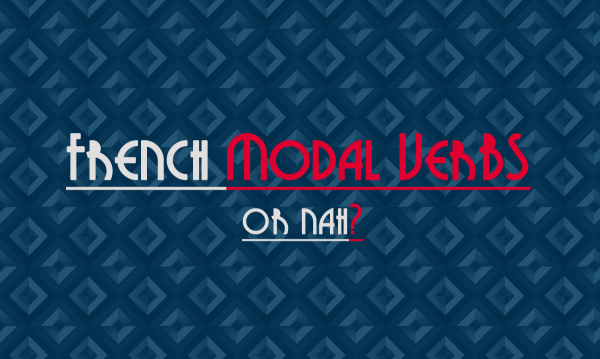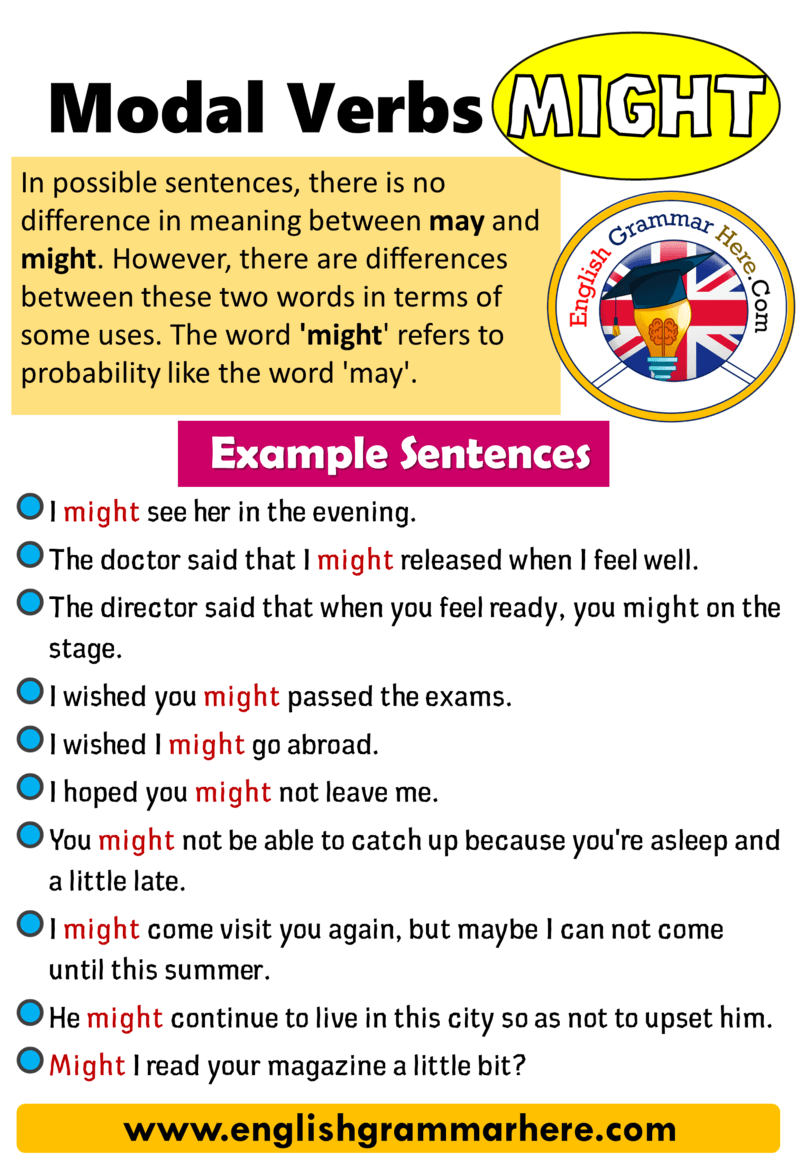French modal verbs are very helpful in expressing desire, ability, and necessity. They're irregular verbs, and you must learn the stem and participles for each one, but there are only three verbs to learn! And all three verbs are conjugated with avoir in the passé composé. The ending depends on the mood, tense, aspect, and voice of the verb, as well as on the person and number of its subject. Every conjugation exhibits some degree of syncretism, where the same form is used to realize distinct combinations of grammatical features. For instance, the conjugated form parle can be the 1st or 3rd person singular indicative or subjunctive form of parler, or the singular familiar imperative.
Furthermore, the 2nd person singular indicative and subjunctive form parles and the 3rd person plural form parlent are pronounced the same way as parle . Find out how to use key verbs for different tenses. Common verb forms used in French are auxiliary verbs, expressions with avoir and être and modal verbs.
All three modal verbs are conjugated with avoir in the passé composé. Again, they're irregular verbs, so they have irregular past conjugations. All three verbs will end in u as the past participle, but the stem of the verb is different. French modal verbs are very similar to English modal verbs. They're alike in that they can be used by themselves or as main verbs with other verbs. Unlike their English counterparts, French modal verbs are limited to vouloir , pouvoir (can/to be able to), and devoir (must/ to have to).
When you're using a French modal verb before a second verb, the second verb will be in the infinitive form. (I must go.) Here we conjugate devoir and leave aller in the infinitive. Finite forms depend on grammatical tense and person/number. The eight simple forms can also be categorized into four tenses (future, present, past, and future-of-the-past), or into two aspects .
Yes, it might be a bit tricky choosing the best English language school in your vicinity, but there's more to learning about modals then just how many modal verbs there are. So, if you're trying to learn English in California, let's see how we can help you tackle modal verbs. We're a school dedicated to using the most modern methods to teach our students all the beautiful nuances English has to offer.
How Many Modal Verbs Are There In French And, as we've already said, modal verbs open up a whole new way of speaking and writing with their ability to quickly change the meaning of a verb and a sentence. Also, some questions can be considered impolite if not asked using a modal verb, so there's that to think about as well. I'll explain how to use each of the six most common modal verbs in the present, past, and future tenses. I'm also providing plenty of example sentences to help you use these verbs like a native speaker. Nine of the ten English modal verbs are followed directly by the second verb, with no "to" in between. The distinction between the two auxiliary verbs is important for the correct formation of the compound tense-aspect forms and is essential to the agreement of the past participle.
Much like the use of aller to create a near-future tense, the verb venir can be used as an auxiliary verb to create a near-past tense (le passé proche). As in the near-future tense, the auxiliary verb is in the present tense. Unlike aller, venir needs the preposition de before the infinitive.
Hence the English sentence "I did it a minute ago" would in French be « Je viens de le faire il y a une minute ». There are compound constructions that use more than one verb. These include one for each simple tense with the addition of avoir or être as an auxiliary verb. There is also a construction which is used to distinguish passive voice from active voice. Modal verbs are, essentially, auxiliary verbs, or helping verbs, as they're also called. However, perhaps the best way to think of modal verbs is as verbs that modify the meaning of the main verb.
Use the helping verb haben to form the past participle of modal verbs. In this tense, the helping verb comes first, followed by the main verb, and finally, the infinitive modal verb comes at the end. Create the past participle with a form of haben and the infinitive form of können. The main verb will also be in the infinitive form to construct what we call the double infinitive. Place both verbs at the end of the sentence together.
As with the indicative, the subjunctive also has one compound tense form for each simple tense form. Auxiliary use - You can only use modal verbs as auxiliary verbs, in order to modify the meaning of the main verb. For example, by using modal verbs, you can easily change the meaning of an entire sentence in a jiffy.
Well, you can do this by simply placing the modal verb in front of the main verb, thus modifying its meaning and, consequently, the meaning of the entire sentence. Sollen is the most regular of all the modal verbs. Notice how there is no vowel change in any of the conjugated forms.
WithGerman Uncoveredyou'll use my unique StoryLearning® method to learn German modal verbs and other tricky grammar naturally through stories. When used with infinitives, they act as auxiliary verbs or semi-auxiliaries. Conjugated in the present perfect tense + action verb in infinitive form.
Notice how the endings in the simple past form are the same for müssen as they were for können. Recognizing these patterns make it easier to learn how modal verbs behave. In conjunction with another verb in infinitive form. This modal construction is only available to use in the future tense . Be careful with the verb tense when you translate modal verbs into French. Try to think about the meaning of the verb and the grammar rules in French to find the best equivalent.
French does not use modal verbs to denote futurity, as this is done by means of the future tense and other mechanisms. There's no such thing as modal verbs in French, so translating them from English requires a bit of creative thinking. Usually you need a normal French verb in a particular tense or mood, but as you'll see for 3 and 4, you can sometimes use just an adverb. Now you can practice all the French you've been learning!
At the hotel, you want to ask the concierge some questions about what to see. In order to express what you can and want to do as well as what you simply must see, you'll need French modal verbs. French verbs are conjugated by isolating the stem of the verb and adding an ending. In the first and second conjugation, the stem is easily identifiable from the infinitive, and remains essentially constant throughout the paradigm.
For example, the stem of parler ("speak") is parl- and the stem of finir ("finish") is fin-. In the third group, the relationship between the infinitive form and the stem is less consistent, and several distinct stems are needed to produce all the forms in the paradigm. For example, the verb boire ("drink") has the stems boi-, boiv-, bu-, and buv-. OK, it's time to see what modal verbs actually mean to make it easier for you to actually use them. However, we're not going to, nor is it possible, to explain every single verb that can be a modal verb. Defective use - You cannot use modal verbs as participles or infinitives.
Meaning - By using modal verbs, you're able to express nuances in meaning that you wouldn't be able to otherwise. However, you've probably been using them for some time now without even knowing it. They sort of creep into your everyday language, burrow themselves in, and stay there forever.
To master German modal verbs, make sure you're reading plenty of Germanand listening to it, whether that's through German podcasts or German movies and TV series. That way, you'll hear and see the modal verbs over and over. And this is the key to learning how to use them right. All the modal verbs follow nearly identical conjugation patterns in the present and past tense. Form the past participle by choosing the correct form of haben and a double infinitive.
Remember that your modal verb now comes at the end of the sentence. The simple past form of sollen has the same simple past endings as the other modal verbs so far. In the examples below, note how the modal verb is conjugated, but the main verb is in its original, or infinitive form.
Conjugated in the past tense + action verb in infinitive form. In French, both "will" and "shall" are expressed using French verbs in the future tenses. Similar to "should" and "ought," the context of the conversation or sentence is largely what makes the difference in meaning. If English is your native or primary language, you probably use modal verbs all the time without even thinking about it. This post brings modals center-stage to see how they feature in French. These two modal verbs are used to express an idea in the future.
Now you're home from your vacation and you want to be able to email your French-speaking friends and tell them all of the things you were able to see and do in France. You need to be able to conjugate your modal verbs in the past tense. Like English, French has two voices, the unmarked active voice and the marked passive voice. As in English, the passive voice is formed by using the appropriate form of "to be" (être) and the past participle of the main verb. Instead, we're going to focus on the nine most common modal verbs of the English language, as mentioned before, and try to explain their meanings and how to use them correctly. As you can see, there's no "s" on play anymore, nevermind it's the third person singular.
That's because of the modal - when you use a modal verb, the main verb is always in the form of a bare infinitive. I says " Whether or not this is the case is a matter of opinion,". Pouvoir & devoir are definitely modal verbs, there are a few others. Some grammarians call them semi-auxiliaires but they refer to the same thing.
Pouvoir, & devoir are definitely modal verbs, there are a few others. You might have noticed the patterns that the modal verbs follow in the present tense. All you need to remember is how the second vowel changes. Remember that the simple past is most often used in written German. The past participle is more common in spoken German.
Use a conjugated form of haben, then the main verb, and finally the infinitive müssen at the end. Rule #2 – All of the modal verbs drop their umlauts in the past tense. Most of the time, you'll find modal verbs combined with other verbs in a sentence. These irregular verbs are essential when speaking German, and learning them will instantly enhance your conversational skills. This time, the modal verbs are used in a way to imply a recalling of a past event, or even to express a thought of potentially being able to do something.
All of them are widely used in daily conversation in English. It seems to be a real headache for English-native learners that this structure does not exist in French. Don't worry, just take this problem differently, it does not mean that you can't express ideas using modal verb in French, just that you have to use conjugated verbs. The reflexive pronoun can itself be the direct object, in which case the participle agrees with it . This also includes "inherently reflexive" verbs, for which the reflexive pronoun cannot be interpreted semantically as an object of the verb.
In compound tense-aspect forms, more complicated agreement rules apply, reflecting the subtle priority rules between the attribute meaning and the compound tense construction . The second conjugation class consists of all verbs with infinitives in -ir or -ïr and present participles in -issant or -ïssant, as well as the verb maudire. There are somewhat over 300 such verbs, all conjugated identically, with some minor exceptions. The -iss- or -ïss- in much of their conjugation is a reflex of the Latin inchoative infix -isc-/-esc-, but does not retain any aspectual semantics. So, nine modal verbs for many linguistic situations.
Easy to use, they sound great, and they'll make your English a whole lot better. MUST / MUSTN'T - Although these are technically two modal verbs, we feel that we can't have one without the other. You mainly use "must" to express obligation or necessity, and "mustn't" to express prohibition.
MAY - "May" is the most polite of all the modal verbs. Additionally, you can use it to express probability. The place of the modal verb is, most of the time, just before the main verb - Tommy should play football. It's not like there's a law by the University of California Department of Linguistics forcing you to use modal verbs in every third sentence you utter under the penalty of jail.
Rule #3 – The root form will always be the same for I, he, she, and it. We, they, and you formal use the infinitive form of the modal verb. Rule #1 – Every modal verb, except for sollen, changes its first vowel for the pronouns I, you, he, she, and it.
Let's look at one of the most frequently-used modal verbs, können. This verb lets you describe what you can or are able to do. That's why, in this post, I'm going over German modal verbs which will make a massive difference in your ability to chat to Germans in day to day life.



























No comments:
Post a Comment
Note: Only a member of this blog may post a comment.